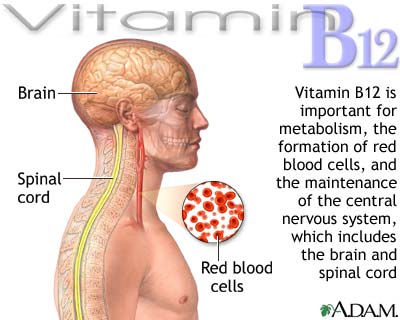All About Vitamins
Vitamins...

This page details the natural kinds :-
Hair Vitamins
The prognosis for hair growth is favorable before the age of 50, as after 50, the growth completely stops. Fortunately there are many nutritional vitamins to help hair grow strong and healthy. Many people often wonder, 'do hair vitamins work'?
Hair vitamins are mainly those nutritional compounds that have excellent antioxidant properties like Vitamin A, Vitamin C and Vitamin E.
Long list of essential vitamins and hair vitamins for hair work to improve the health of hair and provide shine and luster. Vitamin A protects hair follicles from the damage caused by free radicals. Deficiency of this vitamin causes dry hair whereas toxicity causes hair loss.
C Vitamin for hair plays an essential role in producing and maintaining healthy collagen. Collagen is a connective tissue present in the hair follicles and keeps the hair intact. It also works as an excellent antioxidant and protects the cells found within hair follicles from the harmful effects of free radicals.
Hair care vitamins in the form of Vitamin E aids in maintaining the integrity of hair follicles cell membranes and also act as a powerful antioxidant.
Apart from Vitamin A, C and E, what vitamins help hair? Vitamin B complex is the answer. B Vitamins are also significant nutrients in maintaining healthy hair. Deficiency of Vitamin B1, Vitamin B2, Vitamin B3 and Vitamin B5 is a contributing factor to the undernourishment of hair-follicle cells.
Vitamin B9 present in low levels in human body causes decreased cell division and growth of hair follicles. The major symptoms of B9 deficiency are anemia, fatigue, apathy and graying hair. Researches and studies have revealed the significance of biotin in supporting hair follicles nourishment and preserving strength, texture and function of hair.
Low level or overdose of vitamins is consumed based upon the hair condition.
Vitamins for black hair are useful for preventing black hair problems like dryness, breakage and hair loss. These black hair vitamins are responsible for healthier hair, providing moisture and faster growth. Vitamins for thinning hair boost your hair growth and prevents from hair loss. Thinning hair vitamins like Vitamin A and Vitamin C are responsible for adding volume and moisture to hair. Best vitamins for dry hair are Vitamins E and B-complex.
Apart from a range of vitamins, there are many minerals like sulfur, selenium and calcium that are required in sufficient amount for maintaining good hair health.
Vitamins and minerals for hair are supportive in addressing a variety of hair concerns from slow hair growth to thinning of hair. So, consume an adequate amount of required vitamins in any form, either natural food sources or supplementations.
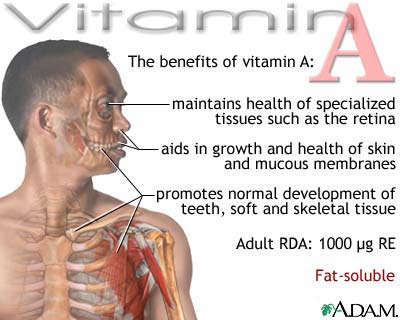
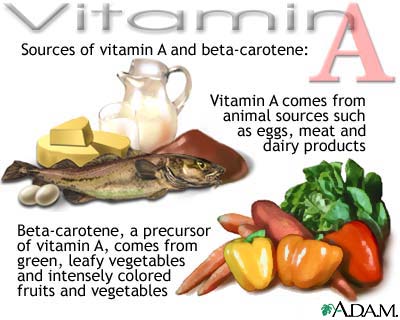
Skin Vitamins
Some of the vitamins essential for skin health as also some of the best vitamins for clear skin include vitamins A, C, E and K. The use of vitamins for better skin should therefore focus on these vitamins as they are likely to boost the appearance of the skin. Good, healthy skin is great for an individual’s appearance. The use of vitamins for better skin can be done through nutrition or through topical applications. It is generally agreed that the use of nutrition is better as this means that the skin can be used reliably as a guide to the individual’s health status.
The best vitamins for skin are, as mentioned above, A, C, E and K. These vitamins for great skin can be fed to the body by individuals who consume many fruits and vegetables. Fruits and vegetables are a great source of the best vitamins for skin care. Because of the varied nutrients in these foods, it is always recommended to consume these foods at any time. The body is capable of absorbing the required best vitamins for skin care if these vitamins are present in the diet of the individual. Individuals who fortify their bodies with vitamins for great skin also ensure that these vitamins are available for other parts and organs of the body as well. This is where the use of nutrition trumps the application of topical vitamin creams. If the body has access to vitamins for better skin, then the body will use these vitamins for other processes as well.
The reality of skin care and of vitamins for great skin is that the individual will have naturally good skin if his or her body is in decent shape. Other factors such as exercise and hydration are also important for the health of the skin. The use of vitamins for clear skin is essential, but is also partially limited in its application simply because there are other variables related to the condition of the skin.
Individuals who suffer from skin conditions and skin problems should visit their dermatologist for a consultation. A random use of vitamins for skin care is unlikely to be effective unless it is properly targeted. A trained dermatologist will be better equipped to suggest the best vitamins for skin care based on the condition of each different patient.
Vitamin deficiencies have tell-tale symptoms which must be understood before they can be treated.
Some of the most common categories and functions of skin care vitamins are as follows:
Vitamins That Help the Skin
Best vitamin for skin is Vitamin C that works to produce a smoother, firmer, healthier and younger skin. Other vitamins for the skin are Vitamin D, Vitamin A and Vitamin B. Vitamin D aids in prevention of premature aging of skin whereas Vitamin A helps to strengthen the protective tissues. Vitamin A also controls the production of acne, reduces sebum production and removes free radicals from the body.
Vitamin B, especially Vitamin B 3, Vitamin B6 and Vitamin B12 are essential for fighting acne and maintaining healthy and glowing skin tone. These are the vitamins to improve skin.
Vitamins for Clear Skin
Clear skin vitamins mainly include Vitamin A, Vitamin B5, Vitamin B6, Vitamin C and Vitamin E. Vitamin A reduces the production of acne and results in a clear skin. Vitamin B5 is mostly applied in the form of lotion containing 20% pantothenic acid for a healthier skin. Vitamin B6 improves hormonal balance and Vitamin C supports the immune system and promotes skin healing. Vitamin E with its antioxidant properties protects the skin from free radicals damage and offers a clear skin. These vitamins are also known as acne skin vitamins.
Itchy Skin Vitamins
Vitamins to help skin improve the itching sensation are Vitamin B and Vitamin A. Vitamin B, mainly biotin is the major cause that manifests the itching sensation in the skin and leads to various other skin damage as well.
Skin Rash Vitamins
Skin rashes are mainly defined as skin inflammations. Antioxidant properties of vitamin c help in preventing skin rashes and maintain a healthy and smooth skin. Vitamin C is actually a good vitamin for the skin.
Vitamins for Beautiful Skin
Vitamins for great skin prevent skin from various skin damages. Potato skin vitamins are one of the best vitamins for skin care as these contain the most essential skin vitamin known as Vitamin C. Vitamin C is an antioxidant and helps in prevention of cellular deterioration, which consequently results in a beautiful skin to be loved and admired.
On and often, a waving question pops up in people's mind, 'what are the real vitamins for better skin'? The answer to this is simple. Any vitamin containing antioxidants are the best vitamins for skin as the antioxidants fight free radicals responsible for aging, acne and various other skin ailments. Hence forth, the role of vitamins in skin care is beyond definition and words.
The skin is the largest organ in our body. It is also one of the most important as it protects all internal organs from infection and disease.
Our skin contributes a lot to our appearance, and it is important for us to ensure that it continues to remain healthy. We use thousands of beauty and skin products on our skin to ensure that our skin appears healthy and beautiful. What we don’t realize is that all the skin needs to look healthy and beautiful is vitamins, minerals, and other nutrients. These nutrients make the skin appear radiant, healthy, clear, and youthful. If you want a blemish free skin, you need to have vitamins for clear skin. It is well known that vitamins and minerals are good for the health, and no matter what form you take these in, they are vital in ensuring that your body remains healthy and you achieve over all well being. For instance, to have a healthy complexion and a blemish free skin, it is important to have all kinds of vitamins and minerals.
Your skin largely radiates what’s inside of your body. Skin conditions, therefore, are a reflection of illnesses within your body. Acne, psoriasis, and ageing are all indications of poor health. You need to consume both minerals and vitamins for glowing skin. Some of the best vitamins for skin are vitamins A, C, and E. All three of these help the skin to rejuvenate and appear youthful for a longer time. Your skin may age very well if you fulfill all your nutritional requirements. On the other hand, if you are ignoring the needs of your body, your skin will begin to age well before its time, and you will appear tired and haggard, even if you are not. If you are lacking in these essential nutrients, your skin will appear lifeless, dull, and sometimes, even blotchy and full of blemishes. There are some vitamins which, when taken internally, can help you improve the appearance of even saggy and dull skin. Nutritional intake and skin health are strongly interrelated. If you are consuming fresh fruits or consuming multivitamin tablets, it could improve your nutritional intake.
Of course, this will not only improve your skin texture and appearance but also your overall health as well. Here are some of the recommended minerals and vitamins for better skin.
Vitamin A: Vitamin A is important to have normal growth as well as development. It can help in the repair of damaged skin cells, and it promotes the growth of new cells. It also keeps the skin tissue healthy and enables efficient blood circulation so that the skin appears youthful and healthy. This is an important antioxidant that also helps you keep the signs of ageing to a minimum. Since it also boosts immunity, it saves you from any infectious diseases. The best food sources for vitamin A are eggs, fish oils, liver, and dairy products. Vitamin A is counted amongst the best vitamins for skin and nails. If you apply vitamin A topically, it can help remove the appearance of fine lines, enhance the natural sloughing off of dead skin, even skin tone, and improve cell elasticity. This is also one of the best vitamins for skin acne.
Vitamin B: Vitamin B is one of the best vitamins for clear skin. This clear skin vitamin is also necessary for the regular metabolism of proteins. It helps in building red blood cells, therefore making blood circulation more efficient, and it is important in synthesis of hormones as well as proper functioning of the immune system. One of the best vitamins for skin care, vitamin B is found in fish and poultry products. It is also found in dairy products, leafy vegetables, bananas, and whole grains. Vitamin B injections are popular remedies for skin conditions, especially in dermatitis. Vitamin B injection benefits include prevention and treatment of dermatitis and scaly skin. It can also help in formation of collagen. The benefits that vitamin B injection can offer are not comparable to other topical applications, since the effects of these injections are rather quick.
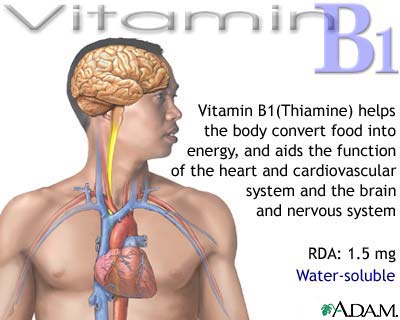
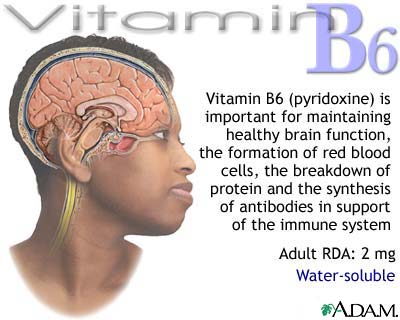
Vitamin C: This is one of the best vitamins for skin elasticity.
This vitamin is essential for the production of collagen and is not synthesized in the body. Collagen is an important component of the skin that gives the tissues their elasticity. Vitamin C is also an important antioxidant, and it is useful in neutralizing free radicals. Some of the best food sources for vitamin C include cabbage, tomatoes, broccoli, citrus fruits, melons, peppers, cereals, and berries. Since this is one of the best vitamins for skin health, vitamin C can be offered to promote the healing of scar tissue, bruises, cuts, and any other condition that can be caused by ultraviolet rays. Vitamin C also promotes the repair of damaged collagen.
Vitamin D: This is one of the best vitamins for skin, hair, and nails. This vitamin is essential for the proper absorption of calcium in the body. The vitamin is also essential for the development of skin cells and is vital in the repair of damaged skin and synthesis of new skin cells. The body can synthesize vitamin D in the presence of sunlight. However, there are external sources of vitamin D as well. Liver, milk, eggs, salmon, and herring are some of the important dietary sources of vitamin D. Vitamin D may be offered as a prescription drug to treat psoriasis.
Vitamin E. Another one of the best vitamins for skin hair and one of the best vitamins for skin healing, Vitamin E is necessary for the growth of new, healthy skin tissues. This is an extremely important antioxidant and is used in a lot of topical applications for skin. Vitamin E is one of the most used vitamins in skin creams and other cosmetic preparations. It can be found in vegetable oil, nuts, whole grains, and green leafy vegetables. This vitamin heals inflammation, cuts, scrapes and wounds, and also helps in healing burns.
These essential vitamins for skin also act as important vitamins for itchy skin, skin infections. and damaged skin. For healthy and youthful looking skin, it is important to have a healthy dose of all these vitamins.
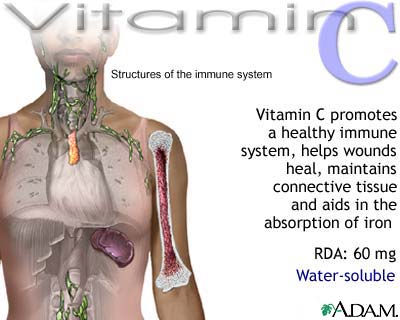
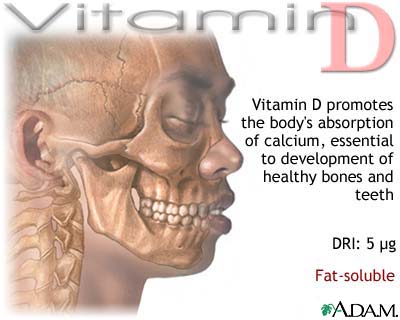
Vitamin B
B complex vitamins are a blend of eight essential vitamins and four supplements that are required by the human body on a daily basis. The first vitamin B complex discovered was Thiamine.
The B complex vitamins are significantly used for the treatment of nervous problems, fatigue and stress. The primary role of the B complex vitamins is releasing energy. They also participate in all significant aspects of food metabolism and in the production of energy. Consuming rich sources of vitamin B complex daily also helps in reinforcement of the immune system and prevention of blood clots.
The eight vitamins of B complex include riboflavin, thiamine, niacin, pantothenic acid, pyridoxine, biotin, cyanocobalamin, and folate. Deficiencies of B complex vitamins are still seen in many countries. It is very essential to understand and learn the answers to “what is vitamin B complex good for” and “what does vitamin B complex do”.
Thiamine or Vitamin B1 helps in the conversion of glucose into energy and in the formation of red blood cells. Good sources of thiamine are pork, watermelon, wheat gram and yeast. Deficiency of thiamine is mainly caused in countries where white rice is the staple food. Other causes of deficiency are poor diet, alcohol intake and certain health ailments.
Symptoms include headache, nausea, depression and fatigue. The most common deficiency disease is Beri-Beri, a disease that adversely affects cardiovascular, gastrointestinal and nervous system.
Vitamin B2, also known as Riboflavin, is greatly involved in energy metabolism and healthy skin. These vitamins are found in meat, liver, milk, cottage cheese, whole grain breads, green leafy vegetables and kidney. Deficiency of this vitamin often leads to inflamed tongue, cracked skin, skin rash, red tongue and reddening of cornea.
Vitamin B3, or Niacin, provides extra energy by reducing the cholesterol level and plays a key role in treating arteriosclerosis. It is found in foods such as salmon, liver, chicken, nuts, cereals and dried peas. Deficiency causes pellagra.
Vitamin B5 is found in cereals, legumes and meat. Adequate intake of this vitamin helps in metabolizing proteins, carbohydrates and fats. Symptoms of deficiency include nausea, abdominal pain, weight loss, constipation and fatigue.
Vitamin B6, or pyridoxine, is required for releasing energy, forming red blood cells and certain brain chemicals. Good sources are whole grains, legumes, bread, meat, nuts, poultry, liver, spinach and bananas. Deficiency of pyridoxine shows symptoms of irritability, cracked corners of the mouth, muscle twitching and kidney stones.
Excessive intake has toxic effects on the human body resulting in numbness or irreversible nerve damage.
Vitamin B 7, or Biotin, helps in the breakdown of fats and carbohydrates to release energy. Good sources are cauliflower, peanuts, liver, egg yolk and chicken. Deficiency symptoms are abnormal heart actions, weight loss, nausea, depression, dry skin, scaly dermatitis, muscle pain, hair loss and weakness.
Vitamin B9, or folic acid, is commonly found in legumes, citrus fruits, eggs, whole grain, nuts and green leafy vegetables. It plays a vital role in the formation of red blood cells and helps in oxygen transportation.
Vitamin B12, or cobalamin, is essential for production and maintenance of body cells and releasing energy. This vitamin is found in animal sources like eggs, milk, fish, meat and liver. Deficiency symptoms are fatigue, lack of appetite, depression, anemia, smooth tongue and degeneration of peripheral nerves progressing to paralysis.
All vitamins of the vitamin B complex should be consumed according to the recommended dietary allowances. Taking B complex vitamins is a measurable activity that has to be restricted in case of overload. Too much vitamin B complex is harmful and often leads to fatal health conditions.
There is nothing much to say about B complex vitamin but one thing is sure that people can never ignore taking B complex vitamins for healthy growth and development.
Because of the fact that most of us live a kind of life that is very hectic and allows no time for relaxation as a result of over cramped work schedules, many of us tend to ignore the role that the diet plays in the maintenance of the human body. All the energy that we utilize in order to complete the hundred and one tasks that we need to accomplish on a daily basis are gathered from the kinds of foods we eat.
As a result, making sure that you eat the right kinds of foods will ensure that your body is more than capable of accomplishing these tasks much faster and accurately. The fast foods like burgers and hot dogs that have become such a convenient option to the busy schedules are heavily cramped with empty calories that do not do anything for our bodies apart from being converted into fat cells and stored in the fatty tissue of the body. They lack any of the essential vitamins, nutrients and carbohydrates that the body requires in order to be able to function optimally. B complex vitamins are a very important part of the dietary intake and many scientific papers have been published on the various links between B complex vitamins and pregnancy, weight loss, energy production as well as development of acne. Moreover, certain papers have also been published detailing the vitamin B complex benefits for hair in men and women as well as the vitamin B complex benefits for depression.
Some of the main priorities that B complex vitamins play in the upkeep of the human body include the support of the increased rate of metabolism, the maintenance of a healthy skin as well as muscle tone while also playing a very prominent role in the enhancing of the immune system. It also helps to be aware of the fact that a regular vitamin B complex dosage will also help in the prevention of pancreatic cancer, especially when included in your food instead of in a vitamin tablet form.
A little history on B complex vitamins shows that, up until very recently, we were under the impression that Vitamin B was a single water-soluble vitamin. However, only recently did further scientific research show that B vitamins are actually a group of distinct vitamins that will regularly exist together in the same kind of food. The various individual elements present in B complex vitamins are individually identified as well.
Vitamin B1 is known as thiamine and is known to prevent the development of conditions such as beriberi as well as a number of diseases of the nervous system. It is this element that provides the link between B complex vitamins and weight loss as well as depression. Some of the other symptoms of a thiamine deficiency include weakness and pain in the limbs as well as periods of an irregular heartbeat. Vitamin B2 is riboflavin and some of the more common symptoms of a deficiency include cracks in the lips as well as a significant sensitivity for sunlight. Some of the other common conditions that will develop as a result of a deficiency of riboflavin include hyperemia and pharyngitis.
Vitamin B3 is known as niacin whose deficiency causes dermatitis, insomnia, mental confusion as well as aggression. Pantothenic acid, also known as vitamin B5, is a vitamin that prevents the development of acne and a condition known as paresthesia. Pyridoxine, vitamin B6, is a vitamin whose deficiency is known to lead to conditions such as depression, dermatitis, high blood pressure and elevated levels of homocysteine. Biotin, folic acid and cobalamin are the remaining sets of vitamin B complex that play a huge role in the functioning of a number of organs within the body.
Although the ingestion of vitamin B complex are known to be very beneficial for the human body, it is important to point out the fact that there is always a danger of vitamin B toxicity if consumed in excessive amounts as they could cause various side effects.
This is despite the fact that most B vitamins are eliminated on a regular basis through the urine. Niacin, for instance, which is also known as vitamin B3 – when ingested in amounts of over 3000 mg/day are known to be associated with instances of vomiting, nausea and even symptoms that indicate liver toxicity. Some of the other less serious consequences of a niacin toxicity include redness of the skin which is usually accompanied by some amount of itching, tingling and a mild burning sensation. A toxicity of vitamin B12, cobalamin, is likely to trigger an acne like rash in the body. Therefore one should be aware of the b complex vitamins side effects.
There are a number of natural vitamin b complex sources that exist in our regular foods, however, it is significantly lacking from any plant sources – making vitamin B deficiency a very serious concern amongst vegans. However, the population of the United States of America does not tend to suffer from a deficiency of vitamin B complex because meat is a regular part of the majority of the population living there. The vegans that do not have a lot of complex B vitamins included in their regular diet will need to resort to an intake of dietary supplements. However it should be noted that most of which are very effective in ensuring that your body receives the right amount of complex B vitamins. Pregnant women or women planning for a baby are most regularly urged to increase their intake of folic acid in order to aid the pregnancy. Besides this, athletes and elderly individuals would also need to supplement their dietary intake of complex B vitamins as a result of a lack of absorption and increased requirements of energy by the body. There is a lot of additional information that you can have a look at through sources such as the internet as well as your local bookstore that will help you adapt your diet to allow for better Vitamin intake. You could also consult your doctor on B complex multivitamin tablets that you could use. These are easily available over the counter.
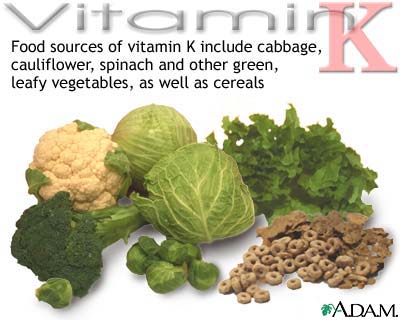
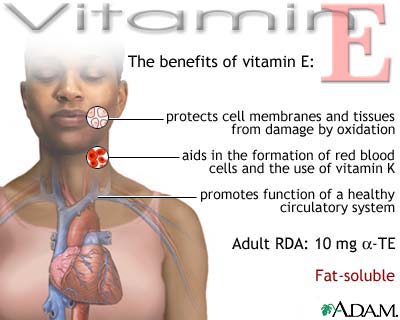
General Information
Herbal vitamins are organically generated vitamins from natural herbs.
Herbal and vitamins are deeply linked to each other. Many of the herbs found in nature are believed to contain high concentration of vitamins.
Assortment of these herbs contains natural vitamins and minerals such as polyphenols and flavonoids.
Natural herbal vitamins are used for regulating and promoting vital body functions. If these vitamins are taken in optimal quantity, they show amazing health benefits.
Herbs with high content of Vitamin A are ginger, dandelion, garlic, peppermint, lemon grass, burdock root, cabbage, mustard greens, spinach, ginseng, celery, turnip greens and many more.
Alfalfa, catnip, chamomile, cayenne, red clover, chickweed, fenugreek, dandelion, nettle, hops, bladder wrack, burdock root, sage and yarrow are natural herbal vitamins that contain good content of Vitamin B complex.
Vitamin C is found in capsicum, dandelion, tomato, lobelia, mustard greens, peppermint, yarrow and thyme whereas Vitamin D is found in alfalfa, eyebright, carrot, fenugreek, mullein, grains, nettle, dandelion, chickweed, horsetail, lemongrass, lettuce, oatmeal and parsley, Emblica Officinalis is a paramount source of herbal Vitamin C.
Herbal vitamins are also used for improving digestion, immune system support, reducing stress and improving vision.
Spirulina is a natural herbal vitamin that treats ocd, a common mental defect. OCD is an acronym used for obsessive compulsive disorder.
A range of vitamins minerals herbals are significantly used for various health improvements.
Herbal vitamins play an essential role in reducing the signs of aging such as wrinkles, dry skin, scaly skin, pigmentation and acne. Signs of aging can also be curbed by applying herbal vitamins antioxidant creams.
Aloe vera, arnica, birch, licorice, marigold, nettles, rosemary, burdock, catmint, mulberry and sage are popular herbal vitamins for hair.
These natural herbal vitamins aid in stimulating hair growth and improving hair conditions such as hair fall, dry hair and brittle hair.
If you feel you are falling short of energy and vitamins in your body, you can try herbal multivitamins that provide physical strength, mental dynamism, improved health and memory, improve sexual vitality and long active youthful life.
Vitamins and herbal remedies are used for variety of health disorders. Most popular herbs used for preventing and treating health conditions are Amalaki, Shilajit, Holy basil, Triphala, and Winter cherry.
These are traditional herbs that are considered to be good for overall health and being since ancient times. These provide the required energy and health to carry out the life process.
lots more to follow .....
© 2014 Majority NOT Minority Ltd - All rights reserved.
No republication of this material, in any form or medium, is permitted without express permission of the author
